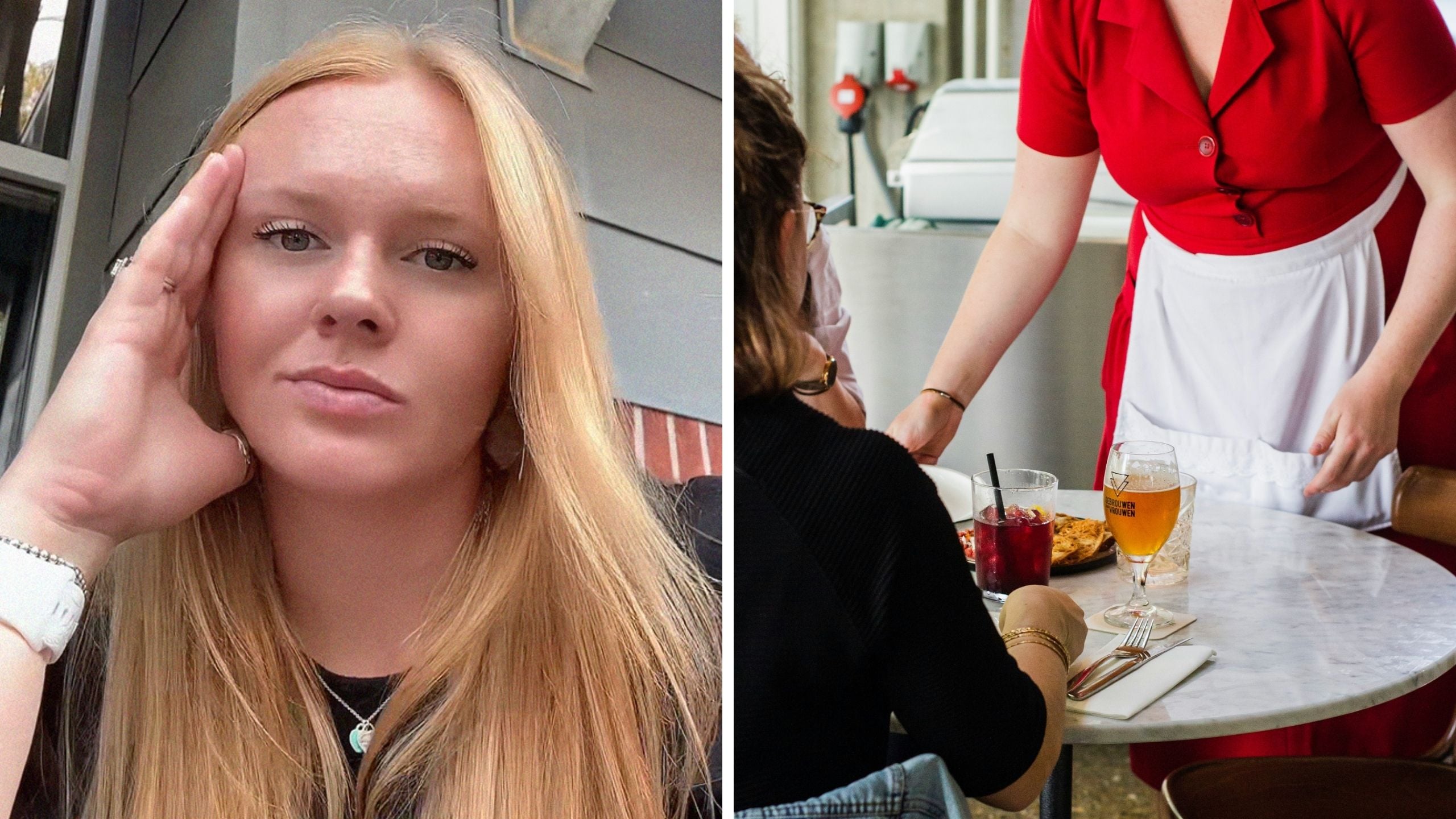
Imagine you’re a server and one of your customers says they have a food allergy. It’s a busy night and, despite the best intentions, you forget to tell the kitchen. So your customer ends up getting served the very thing they’re allergic to.
Best-case scenario: they lied because they don’t like the item. Worst-case scenario: anaphylactic shock. In the latter instance, you could potentially face civil or even criminal liability.
A restaurant in Ireland has a backup plan to ensure this never happens. Its servers put bottles marked “allergen table” on the table to make sure no one inadvertently poisons a diner.
It’s a great way to ensure that people aren’t served something they’re allergic to. The way a server complied with these house rules during a Kansas City woman’s meal may have left a bit to be desired, however.
What did this server do?
In late September, Gretchen (@xgretchx) posted a video showing the “allergen table” bottle. Its text overlay reads, “Told my waitress I had a gluten allergy… tell me why she came back and slammed this on the table like I had the ick.”
In the caption, Gretchen adds, “All I said was I had celiac, not a contagious sickness.”
People think the “allergen table” bottle is a great idea.
“More places should do this,” one commented on her post. “The servers are humans and can forget stuff and this will help them remember.”
Agreed a second, “When dealing with an allergy in the food business you CANNOT forget that table has an allergy.”
Gretchen’s TikTok has nearly 1,000 comments and 2.1 million views, many from people agreeing that this is a great system. Gretchen didn’t immediately respond to a direct message sent via TikTok.
What is Celiac disease?
Celiac disease is an autoimmune disease wherein the body has an adverse reaction to gluten, a protein found in barley, wheat, and rye.
For people like Gretchen, this reaction can cause damage to the small intestine. That damage can cause a litany of symptoms in adults, including gastrointestinal distress, nutrient deficiency, mouth ulcers, headache, nervous system injury, joint pain, and reduced spleen function. Children with celiac disease may experience stunted growth, neurological symptoms, delayed puberty, weight loss, anemia, and irritability.
Clearly, celiac disease, often referred to as a gluten allergy, is serious business.
Unfortunately, there is no test to diagnose celiac disease. Instead, doctors often have to rule out a laundry list of other diseases and conditions before diagnosing someone with celiac disease. That’s why some people spend years suffering before finally finding the cause.
So why do some people react when someone says they have celiac disease or gluten sensitivity? Likely because some people don’t believe it’s real. (It is real.)
It doesn’t help that the popularity of low-carb diets for weight loss has led some to lie about having celiac disease or gluten sensitivity. Wanting to avoid carbs is one thing; lying about having a serious illness is quite another. This undermines people’s belief that it’s real.
As one person vented on the Serverlife Subreddit, “Every time someone orders gluten free bread I ask if it is an allergy. It is rare they admit it’s just a preference.”
A second shared a tale that’s likely familiar to most servers. They said a customer assured them their gluten allergy was “real,” then proceeded to knowingly eat bread, pasta, and soup that all had gluten in them.
Should you go gluten-free if you don’t have celiac?
Eating fewer carbohydrates is a well-known way to lose weight. But there’s a difference between a gluten-free and a low-carb diet.
Though many foods rich in carbohydrates also have gluten, such as most breads, pastas, and cakes, plenty do not. Rice, potatoes, quinoa, corn, and buckwheat are all high-carb and gluten-free.
It is safe to eat gluten-free even if you don’t have celiac disease. But it’s not necessary or recommended.
Eliminating gluten from your diet can actually make you less healthy. Whole grains are rich in nutrients and fiber. They can also help lower cholesterol and regulate blood sugar. Further, processed gluten-free foods often have high amounts of sugar, salt, and fat.
So if you’re trying to improve your health or lose weight, instead of going gluten-free, medical professionals suggest eating more whole foods, like fruits and vegetables, and less highly processed foods, as well as exercising.
And, whatever you do, don’t lie to your server about having celiac disease. People who really have the disease, like Gretchen, deserve to be taken seriously, not doubted.
@xgretchx All I said was I had Celiac, not a contagious sickness ? #GlutenAllergy #FoodAllergy #Celiac #CeliacDisease #Ireland ♬ original sound – Gretchen
Have a tip we should know? [email protected]







